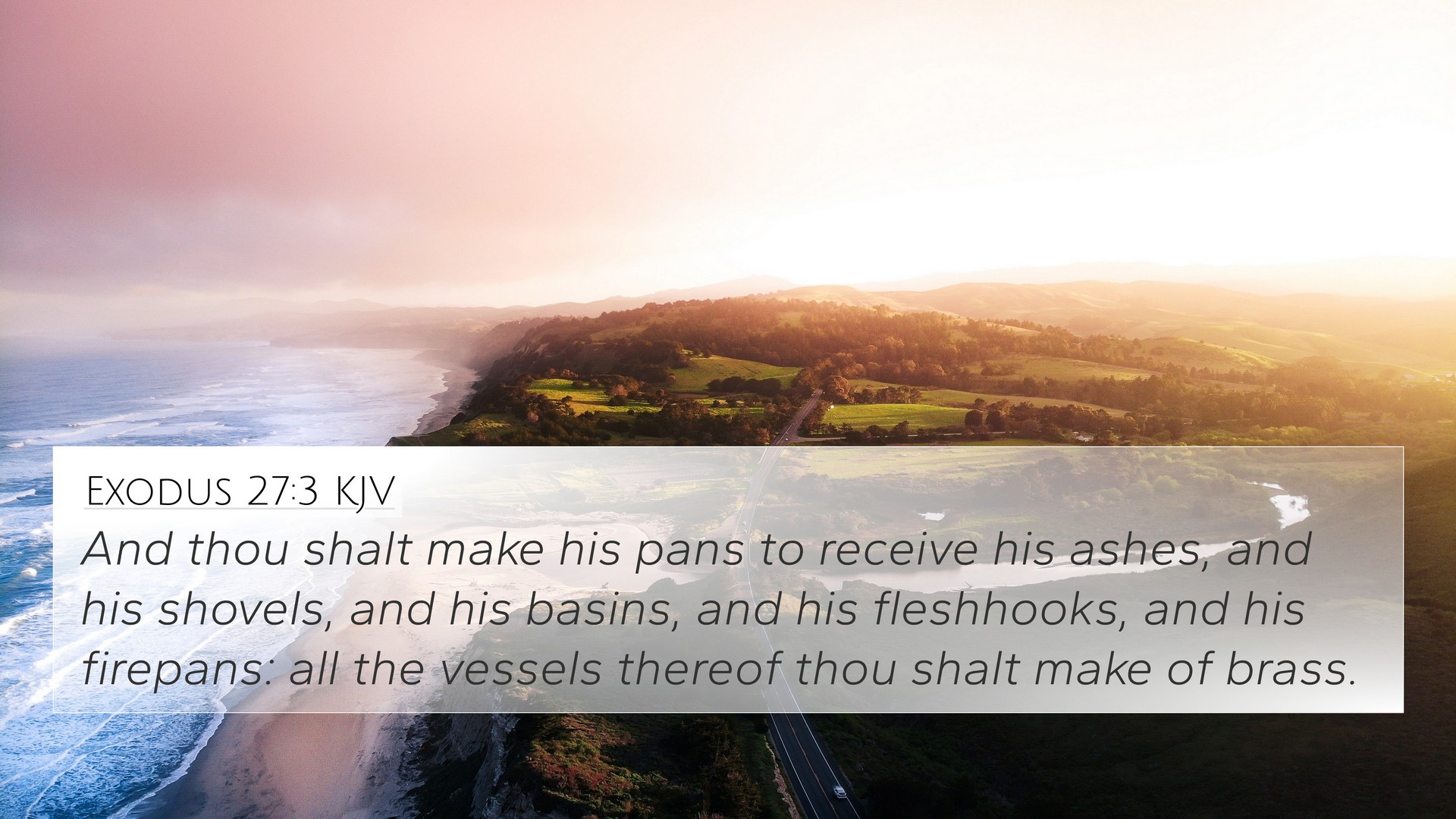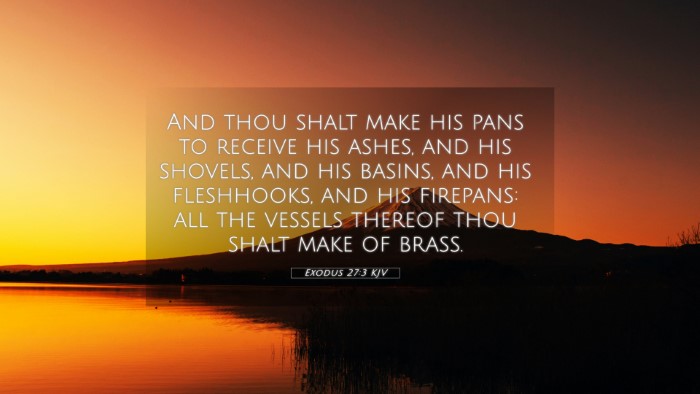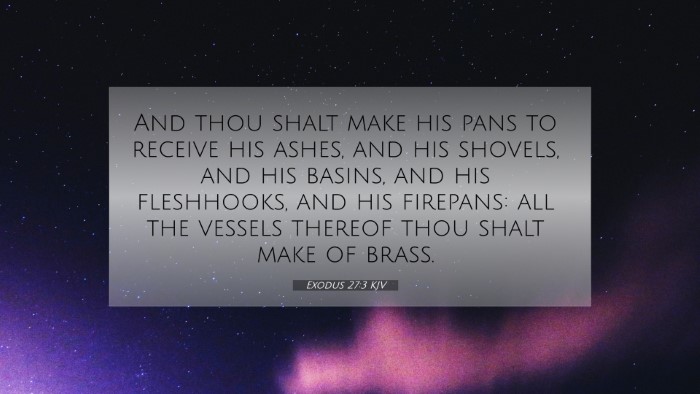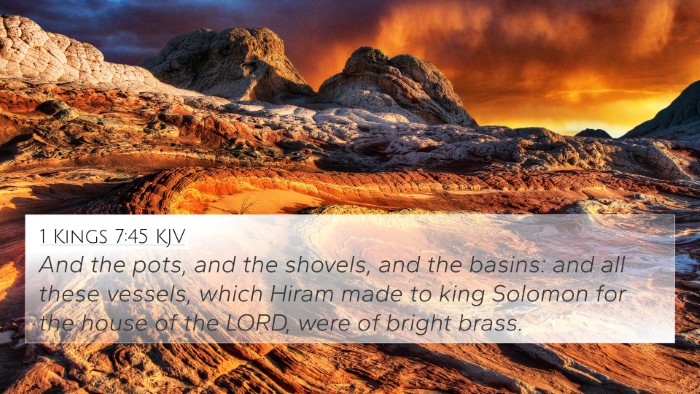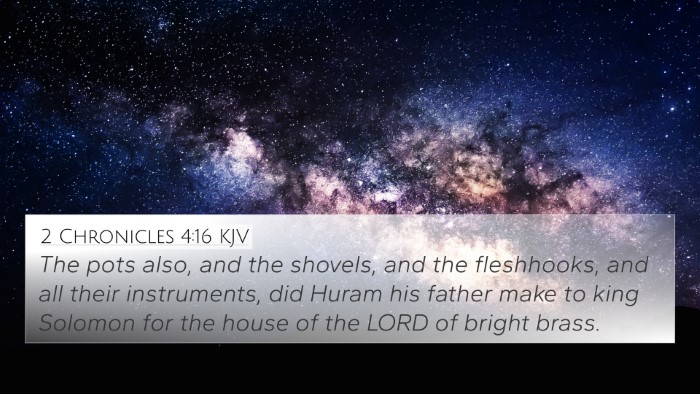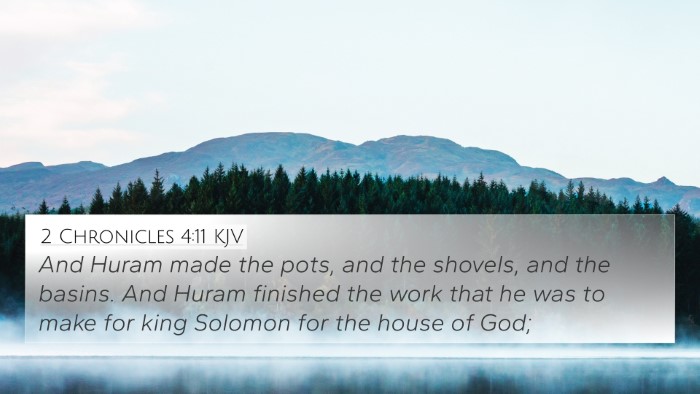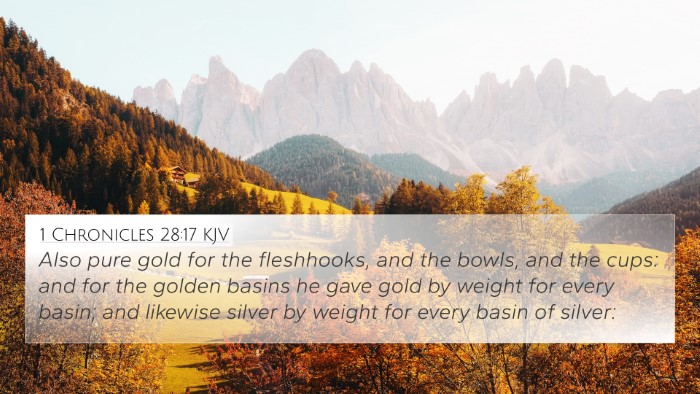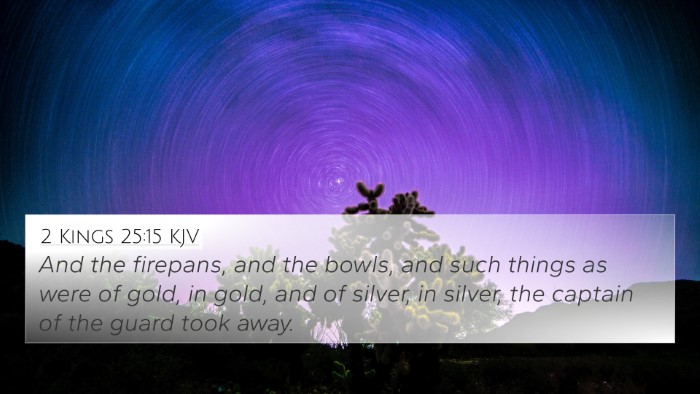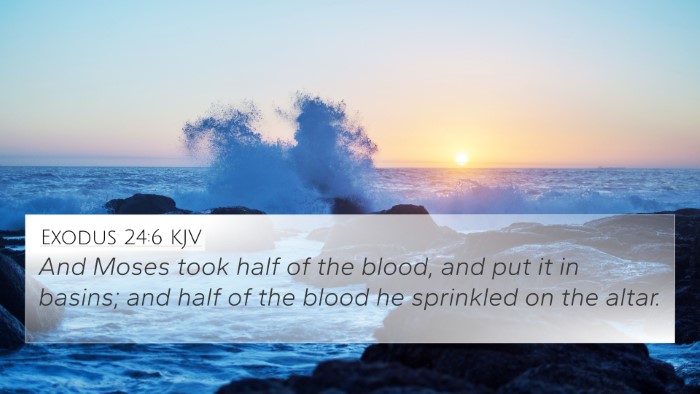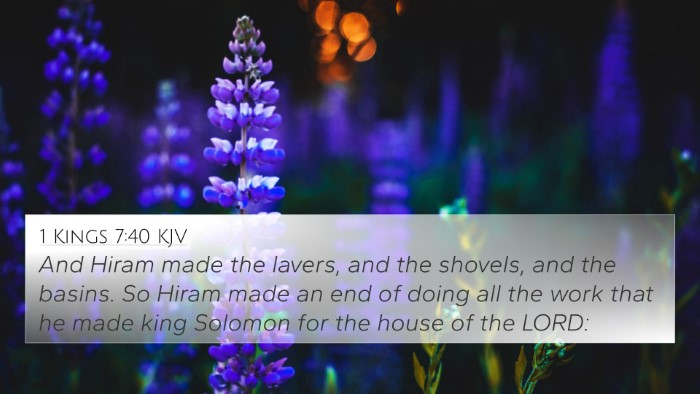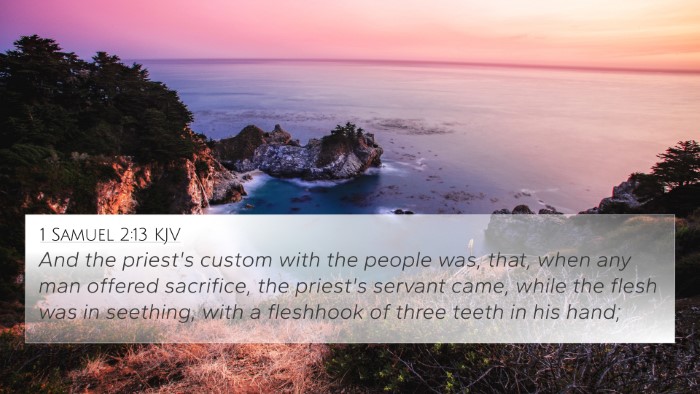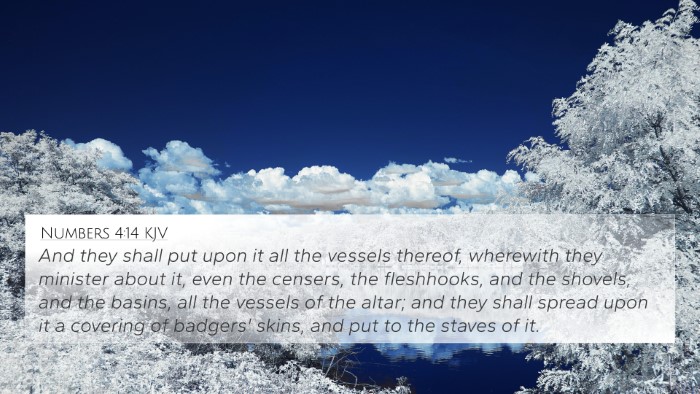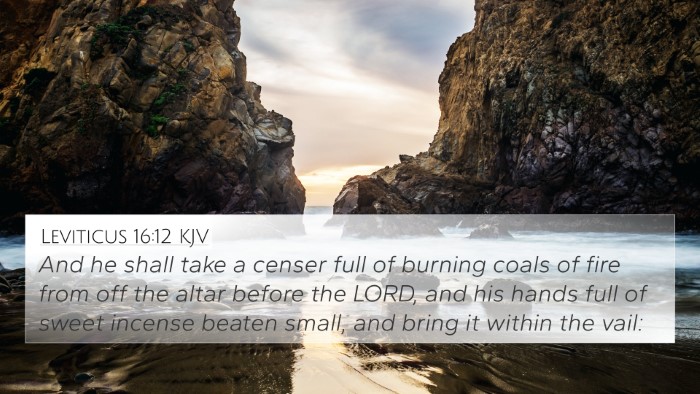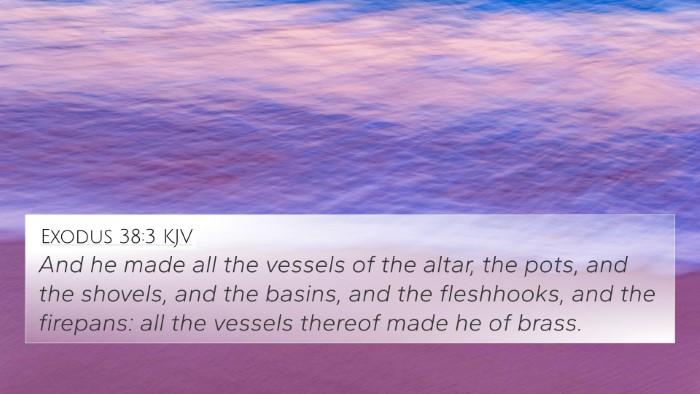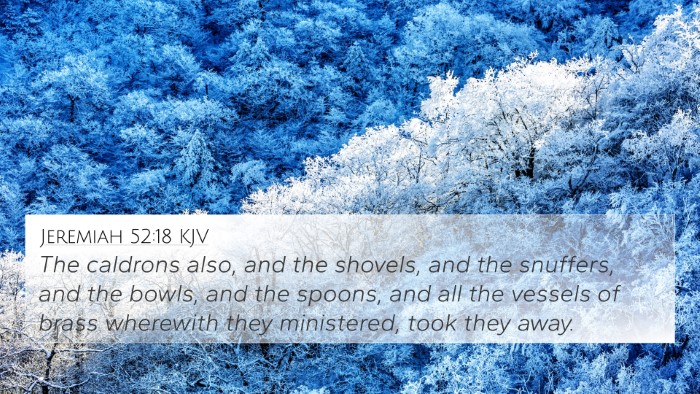Understanding Exodus 27:3
The verse Exodus 27:3 states, "And you shall make pots for it to receive its ashes, and shovels, and basins, and forks, and firepans; you shall make all its utensils of bronze." This verse is part of God's instructions to Moses on how to construct the altar for burnt offerings in the Tabernacle.
Commentary Insights
This section combines insights from public domain commentaries to provide a comprehensive understanding of the verse.
- Matthew Henry: Henry emphasizes the significance of the materials used in sacred objects. He points out that bronze, known for its durability, was appropriate for the sacrificial altar which would endure the intense heat of the sacrifices. It symbolizes resilience and the enduring nature of God's covenant.
- Albert Barnes: Barnes reflects on the practical aspects of the vessels mentioned. Each utensil—pots, shovels, basins, forks, and firepans—served a specific purpose during sacrifices, indicative of God’s orderliness and attention to detail in worship. This order not only reflects divine holiness but also instructs the worshippers on respectful service to God.
- Adam Clarke: Clarke discusses the symbolism of fire in biblical rituals. He notes that fire represents God's presence and purifies offerings. The utensils made of bronze assist in maintaining the purity and sanctity of the sacrificial process, allowing for a meaningful worship experience.
Thematic Connections
Exodus 27:3 serves as a pivotal scripture in understanding the broader themes of worship, sacrifice, and divine instruction. This verse encourages exploration of:
- Worship practices in ancient Israel.
- The significance of materials used for holy objects.
- The role of fire and sacrifice in seeking atonement.
- The organizational structure of worship as outlined in Exodus.
Bible Verse Cross-References
To deepen understanding, here are several Bible verses that relate to Exodus 27:3:
- Leviticus 1:7: "And the sons of Aaron the priest shall put fire on the altar and lay the wood in order on the fire." - This verse connects to the practice of sacrifice and the order of operations at the altar.
- Exodus 30:18: "You shall also make a basin of bronze, with its bronze stand for washing." - Highlights the importance of cleanliness in worship, paralleling the utensils mentioned in Exodus 27:3.
- Hebrews 9:22: "Without the shedding of blood, there is no remission." - This New Testament verse underscores the necessity of sacrifices, linking back to the Old Testament rituals.
- Numbers 4:14: "And they shall put upon it all the vessels thereof, wherewith they minister about it, even the censers, the fleshhooks, and the shovels." - This verse illustrates the ongoing practice and necessity of sacred utensils.
- 2 Chronicles 4:11: "And Huram made the pots and the shovels and the basins." - Connects the intricate details of temple worship to the original instructions in Exodus.
- 1 Peter 2:9: "But you are a chosen generation, a royal priesthood, a holy nation." - Relates to the priestly functions and the significance of appropriate sacrificial practices for believers today.
- Romans 12:1: "I urge you, brethren, by the mercies of God, to present your bodies a living and holy sacrifice." - This verse echoes the sacrificial theme, bridging the Old and New Testament practices.
Learning from Exodus 27:3
In studying Exodus 27:3, one can gather insights applicable to modern worship and the significance of preparing our hearts as sacred vessels for God. The attention to detail in sacrificial practices reminds believers today of the value of integrity and earnestness in worship.
Conclusion
Exodus 27:3 is much more than an instruction; it forms a critical piece in understanding the entirety of biblical worship practices and serves as a valuable facet in the intricate web of scripture. By cross-referencing and exploring related verses, one can appreciate the depth of God's expectations for worship and the continuity of God's covenant throughout the biblical narrative.
